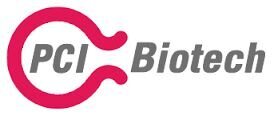Independent evaluation confirms early promising signs of efficacy in the phase I/II bile duct cancer study
Oslo, 6 September 2016 – PCI Biotech (OSE: PCIB), a cancer focused biopharmaceutical company reported today an update on the phase I/II study in inoperable bile duct cancer patients.
The phase I part of the study has been completed with good tolerability and promising early signs of efficacy. The independent evaluation of the radiology data at six months from patients treated in cohort III and the expanded cohort IV is now finalised. A total of seven patients had radiologically evaluable cancer and four of these had objective tumour response, of which two were complete responses.
The central external evaluation was commissioned to ensure independent expert verification of the results reported by the various European sites. The evaluation was performed by two independent radiology experts from the US and in accordance with the generally accepted response evaluation criteria in solid tumours (RECIST).
Per Walday, CEO of PCI Biotech, said: “These early promising signs of efficacy, verified by independent radiology experts, represents an important milestone for the bile duct cancer programme. The patient numbers in our study are small, but the results suggest a several fold increase in objective tumour response rate compared to the landmark study for the current standard treatment, the so called ABC02 study, published in the New England Journal of Medicine in 2010. Local tumour response in the bile duct is especially important in this cancer, to maintain biliary drainage. The fimaCHEM treatment boosts the chemotherapy effect locally in the bile duct, thereby directly targeting the area of most importance to treat. We now have a programme with orphan designation and promising early signs of efficacy in an area with high-unmet medical need. We look forward to take this programme to the next step of development towards the awaiting patients.”
About bile duct cancer (cholangiocarcinoma)
The bile duct drains bile from the liver into the small intestine. Biliary tract sepsis, liver failure and/or malnutrition and cachexia due to locoregional effects of the disease are the most important causes of death. Currently, surgery is the only curative option for these patients; yet the majority of the tumours are inoperable at presentation. Inoperable patients are treated with stenting to keep the bile duct open and with chemotherapy. The combination of gemcitabine and cisplatin has shown promising results and has become standard treatment in some regions, but there is still a need for better treatments to increase overall survival and quality of life.
About PCI Biotech
PCI Biotech is a biopharmaceutical company focusing on development and commercialisation of novel therapies for the treatment of cancer through its innovative photochemical internalisation (PCI) technology platform. PCI is applied to three distinct anticancer paradigms: fimaCHEM (enhancement of chemotherapeutics for localised treatment of cancer), fimaVACC (T-cell induction technology for therapeutic vaccination), and fimaNAc (nucleic acid therapeutics delivery).
Photochemical internalisation induces triggered endosomal release that is used to unlock the true potential of a wide array of therapeutic modalities. The company’s lead fimaCHEM programme consists of a Phase I/II clinical study in bile duct cancer, an orphan indication with a high unmet need and without approved products. fimaVACC applies a unique mode of action to enhance the essential cytotoxic effect of therapeutic cancer vaccines, which works in synergy with several other state-of-the-art vaccination technologies. fimaNAc utilises the endosomal release to provide intracellular delivery of nucleic acids, such as mRNA and siRNA therapeutics, thereby addressing one of the major bottlenecks facing this emerging and promising field.
Contact information:
PCI Biotech Holding ASA, Ullernchausséen 64, N-0379 Oslo, Norway. www.pcibiotech.com
Per Walday, CEO, pw@pcibiotech.no, Mobile: +47 917 93 429.
